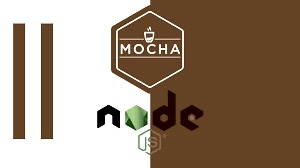Testing JavaScript applications- MochaJs
 Olabisi Oduola
Olabisi Oduola
Mocha.js is a popular JavaScript testing framework that is widely used to test JavaScript applications. It is designed to be flexible, easy to use, and easy to set up. Mocha.js supports a variety of test runners, assertion libraries, and reporting options, making it a versatile choice for testing a wide range of JavaScript applications.
One of the key features of Mocha.js is its ability to run both synchronous and asynchronous tests. This is useful for testing complex asynchronous code, such as code that interacts with a database or makes network requests. Mocha.js provides a number of utility functions for handling asynchronous tests, such as the done() function, which can be used to signal the completion of an async test.
To get started with Mocha.js, you will need to install it and any other dependencies, such as an assertion library like Chai.js. You can install Mocha.js and its dependencies using npm or yarn:
npm install --save-dev mocha chai
Once Mocha.js is installed, you can start writing tests. Mocha.js tests are organized into "suites" and "specs." A suite is a group of related tests, and a spec is an individual test. You can use the describe() function to define a suite, and the it() function to define a spec.
Here is an example of a simple Mocha.js test suite that tests a basic math function:
const assert = require('assert'); describe('Math', function() { describe('#add()', function() { it('should add two numbers', function() { assert.equal(Math.add(1, 2), 3); }); }); });
In this example, the describe() function is used to define a suite called "Math," and the it() function is used to define a spec that tests the add() function. The assert.equal() function is used to verify that the add() function returns the correct result.
To run your Mocha.js tests, you will need to use a test runner, such as the Mocha.js command-line interface. You can run your tests by specifying the path to your test files:
mocha test/math.test.js
Mocha.js provides a number of options for customizing and configuring your tests, such as setting timeouts, enabling test retries, and generating test reports. You can also use plugins and integrations to further customize your testing workflow.
In conclusion, Mocha.js is a powerful and flexible testing framework that is well-suited for testing JavaScript applications. It is easy to set up and use, and provides a range of options for customizing and configuring your tests. Whether you are testing a simple math function or a complex asynchronous code, Mocha.js can help you ensure that your code is reliable and bug-free.
Subscribe to my newsletter
Read articles from Olabisi Oduola directly inside your inbox. Subscribe to the newsletter, and don't miss out.
Written by

Olabisi Oduola
Olabisi Oduola
Writes about Cloud engineering, reliability, observability and performance.